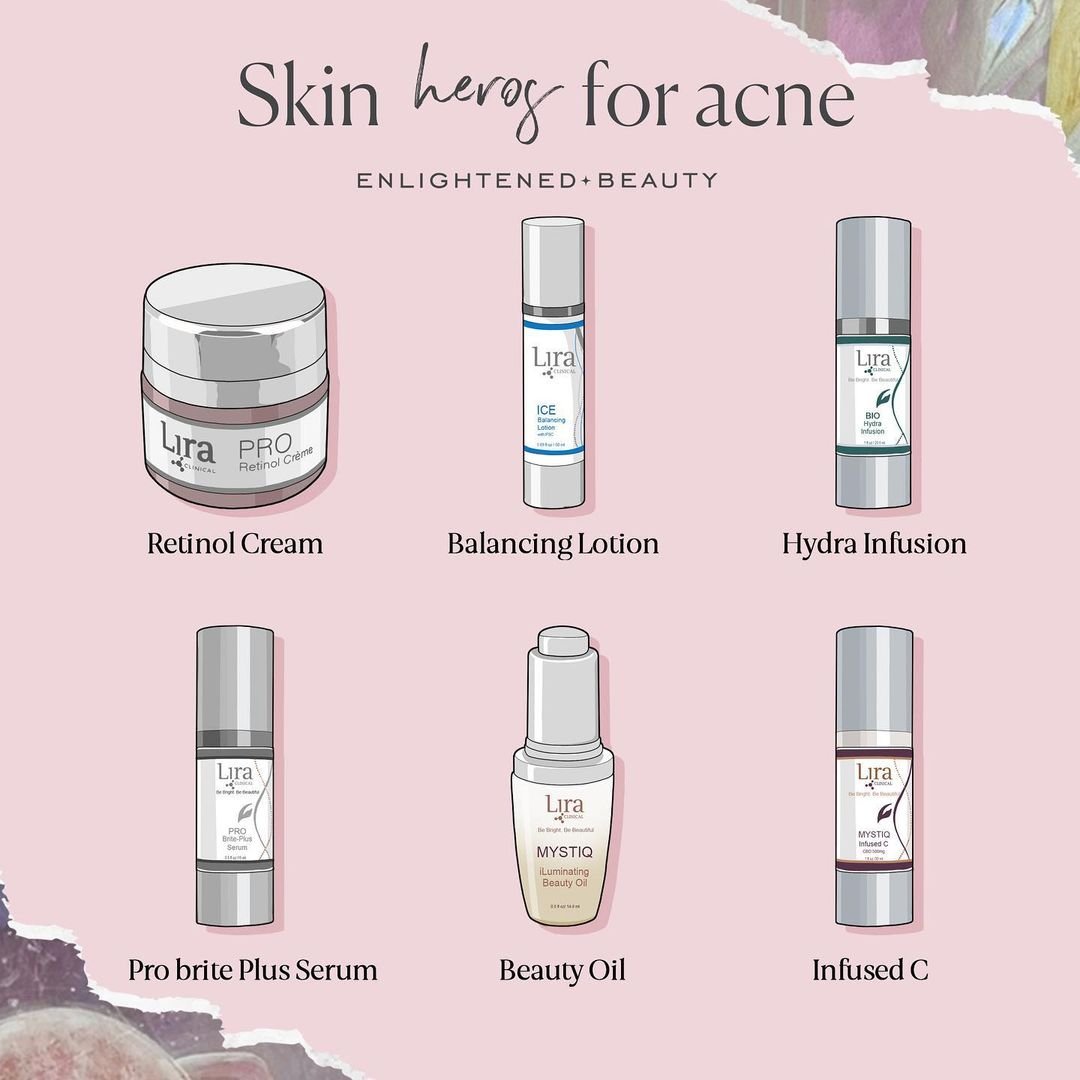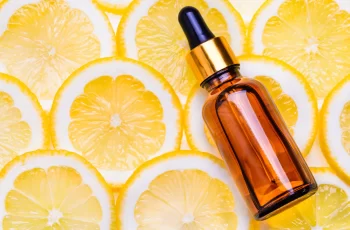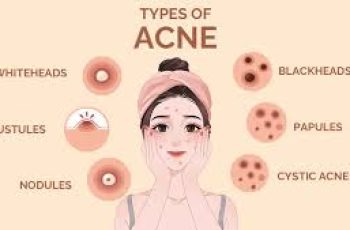Can Hyaluronic Acid and Vitamin C Serums Work Together?
As we all know by now, not all skincare ingredients play well together. Sometimes it feels a bit like brewing a magic potion and hoping it doesn’t dissolve into a puff of purple smoke. With that in mind, today we’re going to take a closer look at two ingredients that not only play well together, but actually work better together.
So let’s not wait any longer and learn more about how to use Hyaluronic Acid and Vitamin C together.
Which came first, Vitamin C or Hyaluronic Acid?
Once you’ve found the best skincare ingredients for your skin, the next challenge is making sure you use them in the right order. People don’t often think too much about this, but it’s actually an important point to remember because applying skincare incorrectly can prevent you from achieving your desired skin goals. It’s generally accepted that when applying skincare products, focus on their consistency, from thinnest to thickest. Serum first, then oil, and finally moisturizer, no matter what ingredients are in the formula, the thing to pay attention to is the consistency.
This gives you peace of mind that you can use a formula with both ingredients or use them separately, as long as you use the thinner product first to reap the benefits.
Can Vitamin C Serum and Hyaluronic Acid be used together?
You actually can, and your skin will thank you! Both ingredients contain properties that target different areas of the skin and don’t compete with each other, keeping your skin healthy, happy, and radiant.
Vitamin C
This potent ingredient is known for being unstable when added to skincare. However, that has changed in recent years with the help of modern beauty science, making this skin darling more stable while still delivering impressive results. This means that the appearance of dark spots and hyperpigmentation caused by UV radiation and hormonal changes like pregnancy can be reduced. It restores radiance to the complexion, while the rich antioxidants in the formula fight free radicals that cause further damage to the skin on a daily basis. By increasing collagen production, Vitamin C also fights signs of premature aging like fine lines and wrinkles.
Hyaluronic Acid
This ingredient is your skin’s best friend, with an amazing ability to draw moisture around your face and lock it in place, keeping the skin plump and hydrated all day long. This is important for keeping your skin in its healthiest state, looking and feeling its best, while keeping the skin’s protective barrier fully functioning and able to protect itself from harmful free radicals such as UV rays, pollution, and other environmental aggressors.
As you can see, these ingredients work on different areas of the skin, complementing each other and working together to give your skin the best results.
What Not to Mix with Hyaluronic Acid?
Hyaluronic acid is a highly effective skin ingredient that delivers impressive and effective results when used alone or in combination with a variety of other skin ingredients. Hyaluronic acid occurs naturally in the body, so all skin types can benefit from its moisturizing properties. It hydrates while soothing any irritation or side effects that can occur when using other powerful ingredients like vitamin C and retinol.
Which is better, vitamin C or hyaluronic acid serum?
This question isn’t as easy to answer as you might think, as the two ingredients are different and have their own unique benefits. Both can deliver impressive results when used alone or in combination. If you’re considering which is better, both products are great for your skin! With so many different formulas, finding the best one to incorporate into your daily skincare routine will be easier than you think.
What should I apply after hyaluronic acid injections?
Since the hydrating properties of hyaluronic acid ensure that your skin is continuously hydrated, the use of other products depends on your own preferences. There is no right or wrong answer, but you will find that if you apply a moisturizer after a hyaluronic acid serum, the hyaluronic acid can do its job and fully hydrate the skin, while the moisturizer forms a physical barrier on the outer surface, providing the skin with a better chance of protecting itself from damage and exposure to free radicals and skin aggressors that come into contact with the skin every day.
Can I use a vitamin C serum on my eyes?
Some skincare enthusiasts even praise eye care formulas that contain vitamin C, regardless. This is mainly because of the help of this potent acid in fighting dark circles. Vitamin C can reverse the signs of skin pigmentation by preventing the skin from producing too much melanin, which causes dark circles under the eyes to darken over time. Vitamin C prevents this from happening and, thanks to the number of antioxidants, reduces further damage and pigmentation.
Do I need to apply a moisturizer after using a vitamin C serum?
Using a moisturizer after a vitamin C serum has the same benefits I mentioned earlier. The main difference is that vitamin C rarely causes skin irritation unless a person has built up a tolerance to the ingredient’s effects. Using a moisturizer can help soothe the skin and relieve signs of redness, irritation, or reaction. The ideal moisturizer formula contains a healthy dose of hyaluronic acid, giving you the best of both worlds.
Now you know a little more about how these two powerful ingredients can benefit your skin. If you have any questions, don’t forget to visit us on Instagram!
DQH Knowledge drop: In your 20s, your skin cell turnover decreases. (Cell turnover is a key component in keeping your skin youthful.) You know what else slows down? Your collagen production. Starting in your 20s, collagen decreases by about 1 percent per year. Should you want to prevent fine lines and wrinkles, start by eliminating behaviors that contribute to premature aging. “If it’s bad for you, it’s bad for your skin,” says dermatologist Michel Somenek.
“Cigarette smoking reduces blood flow to the skin and causes premature wrinkling and a dull skin texture. Making the repeated pursed motion to inhale can also cause smoker’s lines. Alcohol and recreational drugs are toxins for the skin that damage its cellular structure and DNA,” Somenek tells us. “The faster you eliminate vices while you are young, the better chance your skin and body have to recuperate.” Also, adopting an anti-aging routine in your 20s is key. After all, the best offense is a good defense. We spoke to Somenek and experts Joshua Ross and Audrey Kunin to find out more.
Keep reading for the best anti-aging products for your 20s, according to skincare professionals.
Sunscreen
“We all know that the sun is the number one cause of skin aging and starting the prevention in your 20s is very important,” Ross says. “The majority of your sun damage won’t start to appear until you’re in your 30s, so don’t wait until you see it surface or you’ll be behind the curve. Stay ahead of it with a good-quality zinc-based sunscreen worn daily.”
Farmacy Green Defense Daily Mineral Sunscreen
An invisible sunscreen with SPF 30, plus botanical extracts meant to protect skin with tons of antioxidants. Bonus: It’s clean and fine to use under makeup.
Bareminerals Complexion Rescue™ Tinted Moisturizer Broad Spectrum SPF 30
Although we recommend you use your SPF and moisturizer separately, we also understand moments when you don’t have time or energy for that extra step. For those times, this bareMinerals moisturizer is a great thing to have on hand.
Vitamin C Serum
“A great introduction to anti-aging is to start with a vitamin C serum in your morning skincare routine,” Ross says. “It’s a powerful antioxidant that will neutralize free radicals and brighten the skin.” He adds that it’s a great way to counteract the effects of the sun’s harmful rays, which, as previously mentioned, are among the biggest causes of premature aging.
Drunk Elephant C-Firma™ Vitamin C Day Serum
The Drunk Elephant C-Firma is a lightweight serum that promises to give skin a glow by combining the brightening powers of vitamin C with ferulic acid, l-ascorbic acid, and vitamin E. The included sodium hyaluronate is meant to replace hydration loss, so you shouldn’t have to deal with any irritation.
Sunday Riley C.E.O. Rapid Flash Brightening Serum
This potent serum is jam-packed with vitamin C (15 percent, to be exact), which means it’s a potential superstar at both brightening skin and dousing it in antioxidants.
Peptides
Using peptides on your skin has many benefits, says Somenek. “The skin barrier is what defends the body against pollution, UV rays, bacteria, and toxins. It can be damaged by several everyday factors. Using topical peptides aids in building a stronger barrier,” he says. “Peptides comprise elastic fibers, which are a type of protein. These fibers help to make skin appear taut and firm. Peptides can also help repair damaged skin, relieve inflammation, and even out skin tone. Some peptides can kill acne-causing bacteria that is common in 20-somethings.”
Kunin agrees, saying, “Peptides are an excellent entry point for supporting collagen.” She recommends looking for face and eye treatments that contain these collagen-boosting powerhouses.
Charlotte Tilbury Magic Eye Rescue Cream
This Charlotte Tilbury super-emollient eye cream has a base of coconut oil and shea butter (read: it’s incredibly hydrating). Botanicals plus peptides are meant to help reduce dark circles and boost collagen, respectively.
This creamy moisturizer serves up potent collagen-boosting peptides and pycnogenol, and antioxidant-rich vitamin C. “Instead of sitting on top of the skin, peptides penetrate the outer layer so they go deep. The ‘signals’ they send tell the cells to produce elastin and collagen, which are needed for youthful-looking skin,” explains Somenek.
At-Home Peel Pads
Remember that skin cell turnover fiasco we talked about earlier? One way to help support it is by exfoliating. “Exfoliation is important to help keep skin fresh and luminous,” Kunin says. She recommends using at-home peel pads as an easy and effective way to exfoliate.
“The goal in your 20s is to fight the slowing pace of cell turnover. It is wise to use products that gently exfoliate, yet still remove oil and other impurities. Products that have Alpha Hydroxy Acids (AHA) or Beta Hydroxy Acids (BHA) are a good choice.”
According to Somenek, you should only exfoliate two to three times a week. “People of all ages are guilty of over-exfoliating and that can be too much of a good thing,” he says.
Dermadoctor Kakadu C Intensive Vitamin C Peel Pad
A few swipes of this Derma Doctor powerful peel pad promise to leave your skin glowing and smooth, thanks to the seven (yes, seven) types of chemical exfoliants, including AHA and BHA. It also contains vitamin C via Kakadu plum extract for added brightening and antioxidant protection.
KEY INGREDIENTS Kakadu plum extract is sourced from the Kakadu plum, a fruit grown in northern Australia. It contains vitamin C, which restores the skin’s natural barrier, increases collagen production, and soothes irritation.
Dr. Dennis Gross Skincare Alpha Beta® Universal Daily Peel Pads
These are the gold standard of peel pads, with a cult following and over 900 five-star reviews on Sephora. They’re easy to use and contain a blend of anti-aging exfoliating acids.
Emollient Night Cream
“In your 20s, you need to start upping the hydration in your skincare routine. You may have been cautious of over-moisturizing because of acne in your teens, but as you enter your 20s, your skin transitions and becomes drier,” Ross says. “I recommend an emollient night cream added into your evening skincare regimen.”
“Twenty-somethings need to make sure that they are not using creams that will clog their pores and cause excess oil production,” says Somenek. Opt for non-comedogenic products.
Cerave Skin Renewing Night Cream
One great choice is the CeraVe Skin Renewing Night Cream, which is a non-comedogenic night cream that leaves skin soft and glowy. It combines the moisturizing powers of ceramides and hyaluronic acid.
RoC Retinol Correxion Max Hydration Creme
“The best night cream ingredients contain retinol, benzoyl peroxide, and/or salicylic acid or hyaluronic acid. The goal is to moisturize, yet remove excess oil,” says Somenek. This Roc Retinol Correxion cream fits the bill as it contains both hyaluronic acid and retinol so it promises to moisturize while also being non-comedogenic.



